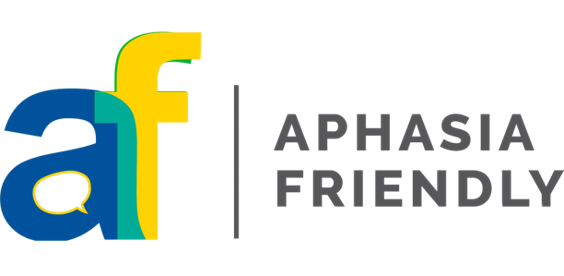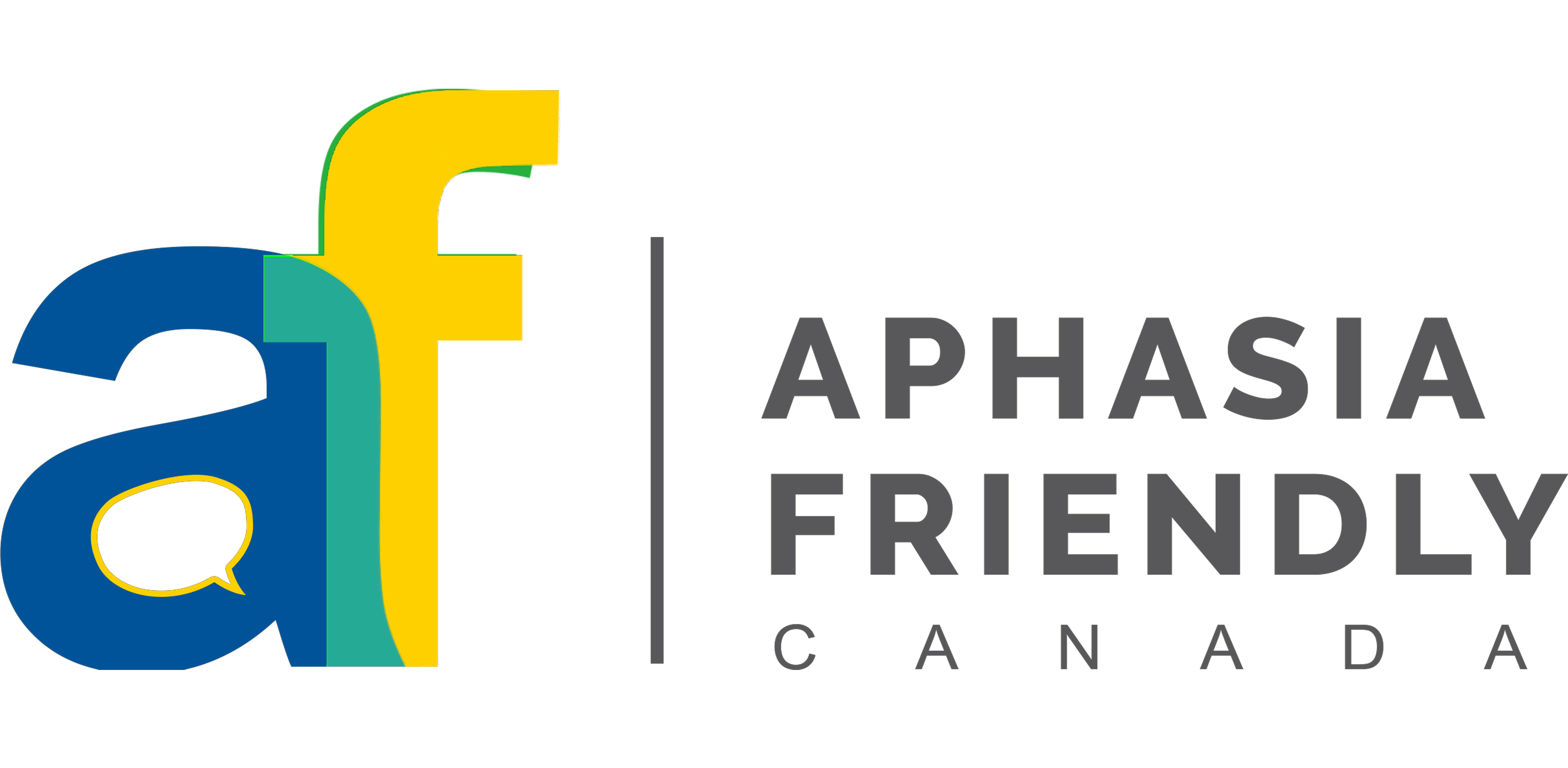
Aphasia is a communication disorder caused by stroke or brain injury, affecting a person’s ability to speak, understand, read, or write. Its impact varies from person to person but often includes difficulties in finding words, constructing sentences, or processing language. These challenges can significantly affect an individual’s social, emotional, and practical life, leading to isolation and a reduced quality of life.
The Aphasia Friendly Canada Project, led by the Cognitive Neuroscience Laboratory at the University of Windsor, is changing this. Our mission is to create a more inclusive environment for people living with aphasia. We provide Canadian businesses with specialized training and resources to help them become Aphasia Friendly. By equipping businesses with practical tools and strategies, we’re helping foster better communication and understanding, ensuring businesses can effectively serve and engage individuals with aphasia.
Through the Aphasia Friendly Business Campaign, your business can not only make a meaningful difference in the lives of individuals with aphasia but also comply with key legal acts like the Charter of Rights and Freedoms, Human Rights Code, Ontarians with Disabilities Act, 2001, and the Accessibility for Ontarians with Disabilities Act, 2005. By adopting accessible communication practices, your business will be better positioned to connect with and support individuals living with aphasia, creating a welcoming, inclusive environment for everyone.
As an Aphasia Friendly Business, you’ll be listed in a local registry shared with healthcare providers, such as speech pathologists and clinical neuropsychologists, giving you greater visibility in the community. You’ll also receive an official Aphasia Friendly Business decal to proudly display, showing your commitment to making your business accessible and welcoming to all.
Aphasia Friendly Canada offers a variety of resources and programs aimed at supporting individuals with aphasia and educating the community:
Aphasia Friendly World Training Module – Learn how your business can become more aphasia-friendly with our specialized training available in over 30 different languages. We provide practical strategies to help you serve and engage individuals with aphasia effectively.
Find an Aphasia Friendly Organization – Looking for a business that understands aphasia? Check out our directory of organizations that have completed our training and are committed to accessible communication.
AFBC Communication Tools – Use our specially designed tools to support conversations with individuals living with aphasia.
Life With Aphasia – Visual examples of individuals living with different types of aphasia and their lived experiences.
Resources – Whether you’re living with aphasia, a caregiver, or a business looking to improve accessibility, we have something for you:
-
Studies & Additional Information – Explore the latest research on aphasia.
-
Partners & Collaborators – Meet the organizations and individuals helping us create an inclusive world.
Contact Us – Have questions? Want to get involved? Reach out—we’d love to hear from you!
Together, we can make the world more aphasia-friendly.


